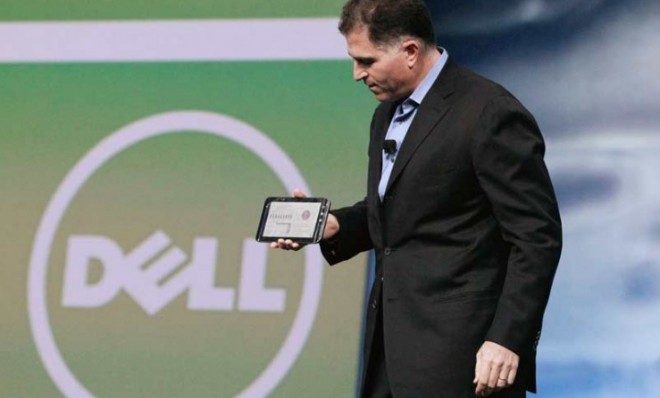Should Microsoft buy a stake in Dell?
A deal could be a hardware-software match made in heaven


A free daily email with the biggest news stories of the day – and the best features from TheWeek.com
You are now subscribed
Your newsletter sign-up was successful
Dell is reportedly in talks for a private buyout, which would allow the struggling computer-maker to craft a turnaround strategy without the pressure of pleasing shareholders every quarter. On Tuesday, CNBC reported that software giant Microsoft is considering joining the buyout with a $1 billion to $3 billion investment that would give it as much as a 13 percent stake in Dell. Both companies declined to comment on the report.
In some respects, it would make sense for Microsoft to buy a chunk of Dell. Like Hewlett-Packard, Dell was late to the smartphone and tablet party, but the company remains the world's third-largest producer of personal computers. Furthermore, Dell has a strong business selling computers to corporate customers, an area that Apple and Google are trying to wriggle into. If Dell were to decline further, that would be bad news for Microsoft, which is reliant on Dell and other PC-makers to run its Windows 8 operating system. As David Goldman writes at CNN Money:
With Dell directly under its influence, Microsoft could pressure the PC maker to produce Windows 8 devices that more closely align with its vision.
"I think Microsoft has identified this is an issue and is trying to have more say in its destiny," said Al Hilwa, an analyst at IDC. "It's clear that Microsoft wants to be more aggressive in controlling and directing the hardware ecosystem for PCs." [CNN Money]
However, Microsoft needs to sell its software to an array of hardware partners, and the company could run into problems if it's seen as being too entwined with Dell. For instance, Microsoft's "decision to manufacture its own Surface tablets last year alienated many of its longtime hardware partners," says Barb Darrow at GigaOm.
The Week
Escape your echo chamber. Get the facts behind the news, plus analysis from multiple perspectives.

Sign up for The Week's Free Newsletters
From our morning news briefing to a weekly Good News Newsletter, get the best of The Week delivered directly to your inbox.
From our morning news briefing to a weekly Good News Newsletter, get the best of The Week delivered directly to your inbox.
Microsoft's relationship with Nokia, which runs Microsoft's Windows Phone operating system on the Lumia smartphone, has led to similar headaches with other handset makers. "Microsoft's deal with Nokia for Windows Phone has provided a lot of benefits to the platform," says Toby Wellington at Macgasm. "However, it has also scared off almost all other hardware manufacturers due to fear of competing with Microsoft and Nokia's flagship phone."
And then there's Dell, which may not want Microsoft constantly looking over its shoulder. "The point of going private is so you can serve your own long-term goals without having to worry about short-term performance," analyst Carl Howe tells CNN Money. "Having an outside investor — Microsoft — muddies those waters. I think Dell would have a more certain future going it alone."
A free daily email with the biggest news stories of the day – and the best features from TheWeek.com
Ryu Spaeth is deputy editor at TheWeek.com. Follow him on Twitter.
-
 The Olympic timekeepers keeping the Games on track
The Olympic timekeepers keeping the Games on trackUnder the Radar Swiss watchmaking giant Omega has been at the finish line of every Olympic Games for nearly 100 years
-
 Will increasing tensions with Iran boil over into war?
Will increasing tensions with Iran boil over into war?Today’s Big Question President Donald Trump has recently been threatening the country
-
 Corruption: The spy sheikh and the president
Corruption: The spy sheikh and the presidentFeature Trump is at the center of another scandal